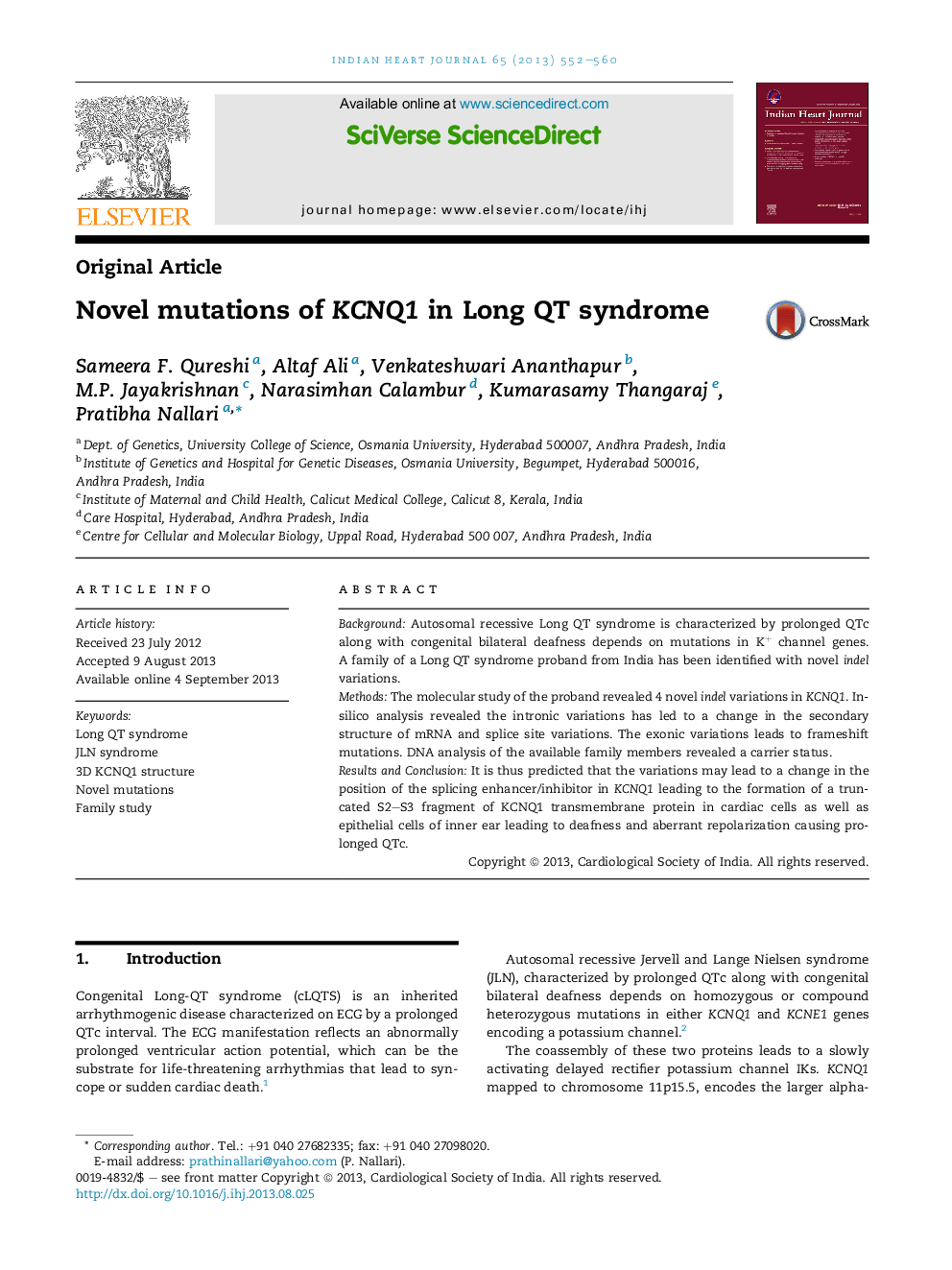| Article ID | Journal | Published Year | Pages | File Type |
|---|---|---|---|---|
| 2927918 | Indian Heart Journal | 2013 | 9 Pages |
BackgroundAutosomal recessive Long QT syndrome is characterized by prolonged QTc along with congenital bilateral deafness depends on mutations in K+ channel genes. A family of a Long QT syndrome proband from India has been identified with novel indel variations.MethodsThe molecular study of the proband revealed 4 novel indel variations in KCNQ1. In-silico analysis revealed the intronic variations has led to a change in the secondary structure of mRNA and splice site variations. The exonic variations leads to frameshift mutations. DNA analysis of the available family members revealed a carrier status.Results and ConclusionIt is thus predicted that the variations may lead to a change in the position of the splicing enhancer/inhibitor in KCNQ1 leading to the formation of a truncated S2–S3 fragment of KCNQ1 transmembrane protein in cardiac cells as well as epithelial cells of inner ear leading to deafness and aberrant repolarization causing prolonged QTc.
